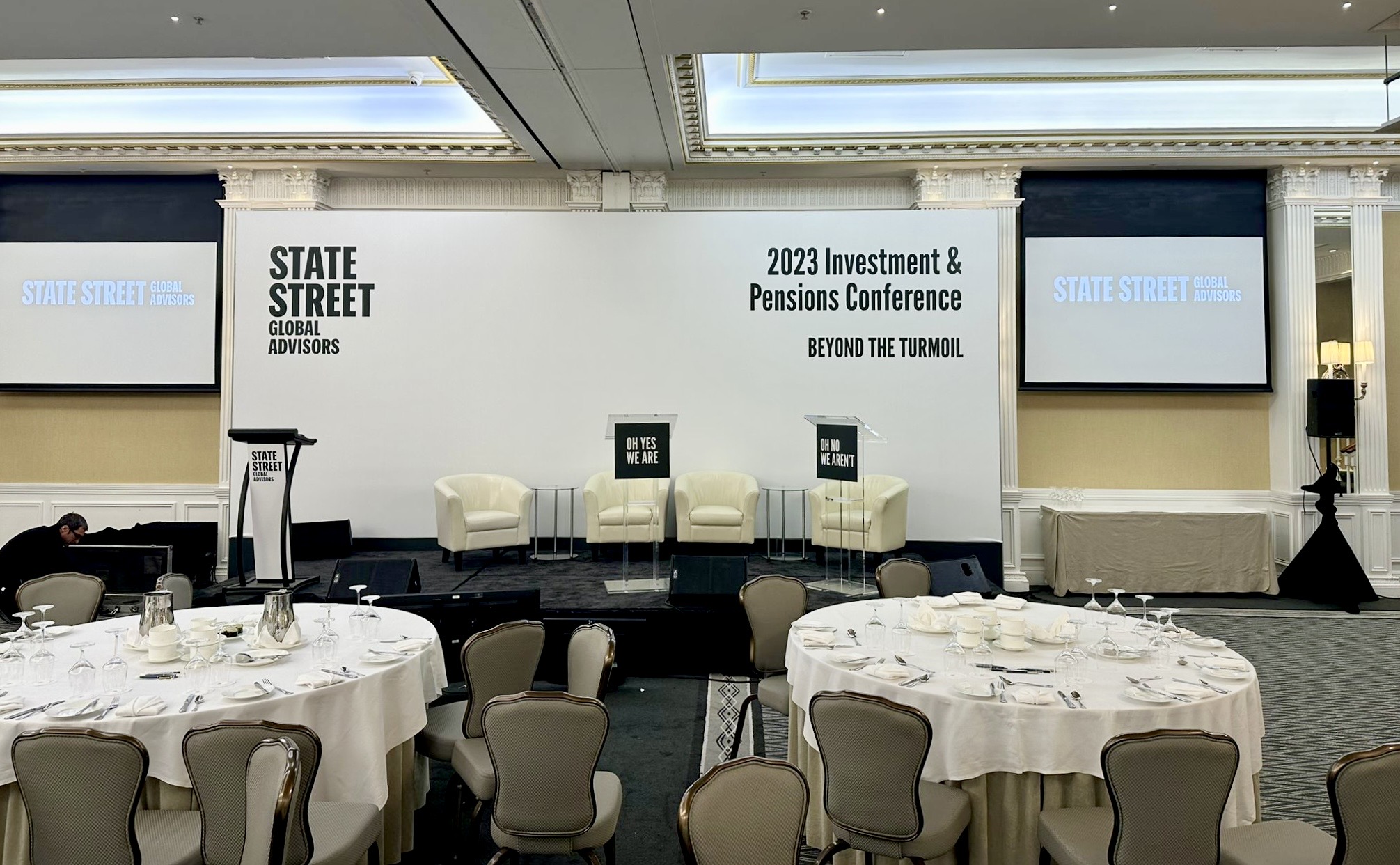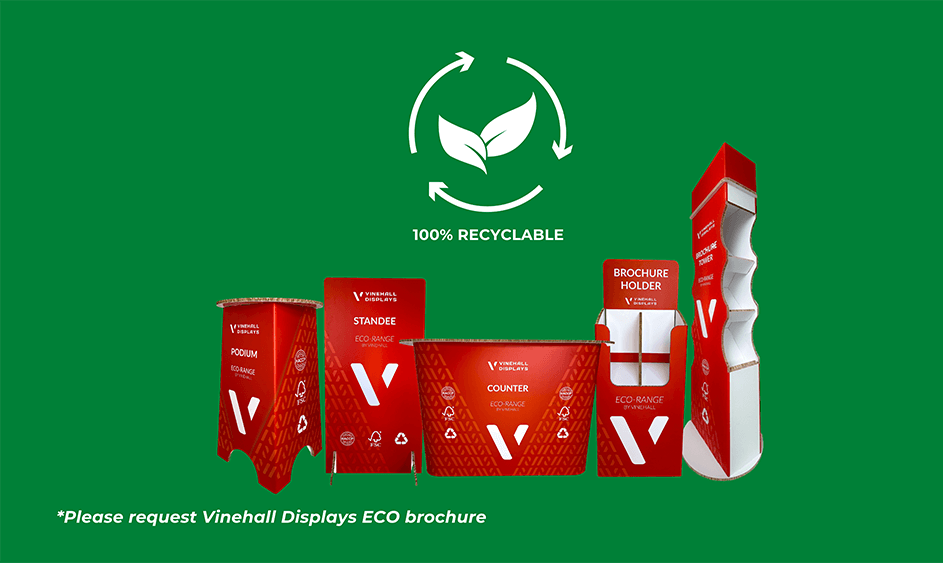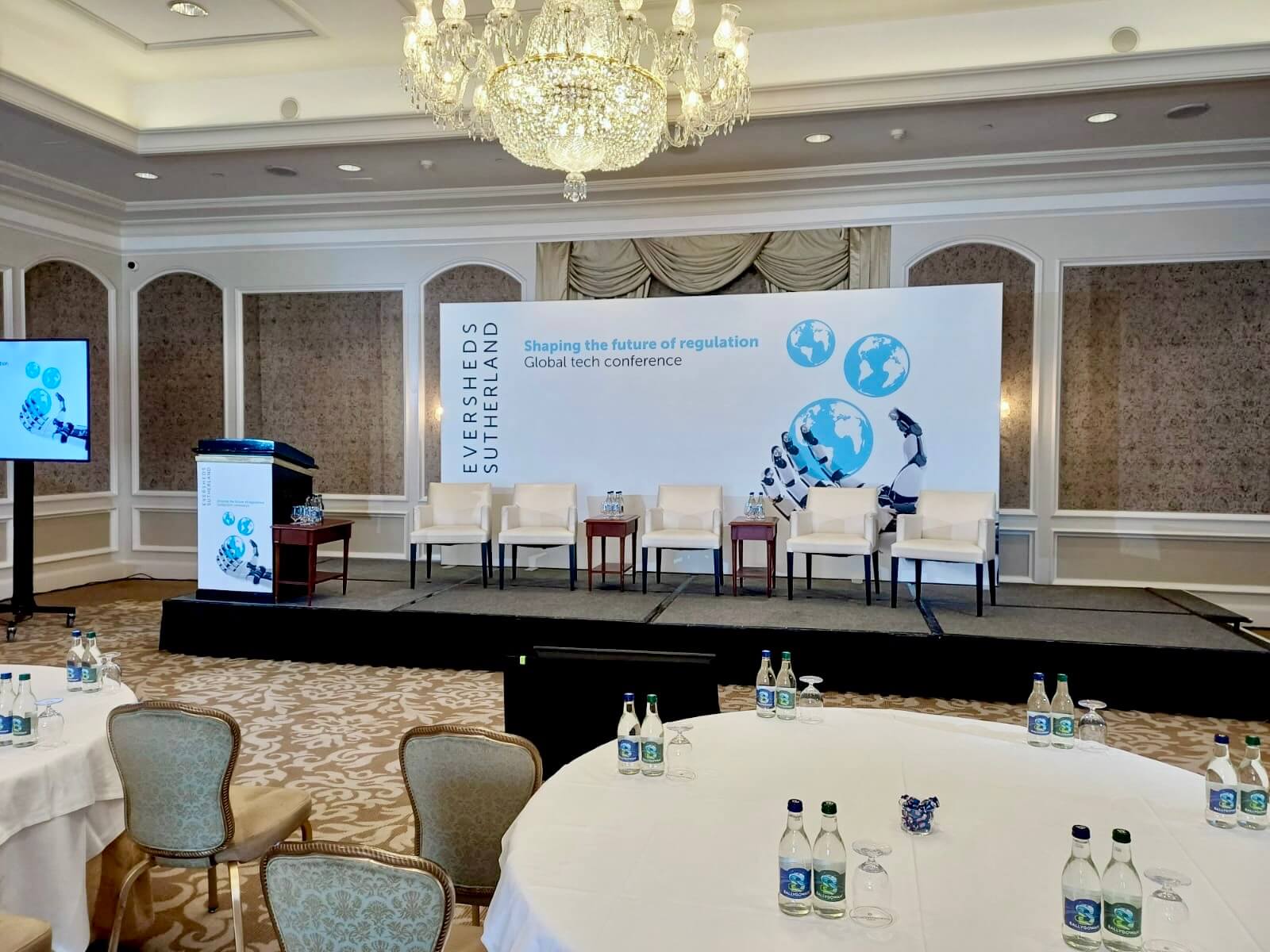Sustainability has become an increasingly important topic in all facets of life, including conference planning and production. Conference planners are beginning to realise that their events can have a significant impact on the environment and are looking for ways to reduce their carbon footprint. This has led to a growing interest in sustainable conference planning, which involves reducing waste, maximising resources, and promoting sustainability.
There are many reasons why sustainability matters in conference planning. Firstly, it is becoming increasingly important to consumers and attendees of these events – the general public is much more informed on the topic of sustainability than before. A recent study found that 85% of people surveyed prefer attending conferences with sustainable practices. Secondly, sustainable conference planning can save money in the long run. By reducing waste and maximising resources, conference planners can save money on things like printing costs, equipment, and food waste.
In order to plan a sustainable conference, there are several practical steps that conference planners can take. These include things like choosing a sustainable partner to work with, reducing waste across each aspect of the conference, and by promoting sustainable practices amongst attendees. However, there are also several challenges to sustainable conference planning, such as the cost and availability of sustainable materials and the difficulty of measuring the impact of sustainable practices. Despite these challenges, there are many case studies of successful sustainable conferences that can serve as examples for other conference planners.

Why Sustainability Matters to Conference Planners
Sustainability is becoming an increasingly important topic in the events industry, particularly in conference planning. Here are some reasons why sustainability matters in conference planning:
Environmental Impact
Conferences can have a significant environmental impact. They generate waste, consume copious amounts of energy and water, and often require the use of single-use materials. By adopting sustainable practices, conference planners can reduce their environmental impact. This can include measures such as:
- Reducing paper use by providing electronic materials and using digital signage, QR codes to websites, and ensuring adequate recycling on-site
- Encouraging attendees to use public transport by providing directions via train, bus, or similar travel options
- Choosing a venue with good environmental credentials, such as one that uses renewable energy or has a recycling program
- If the event requires catering, choose vendors that support sustainability and work to reduce food waste
- Providing vegetarian or vegan meals is a great way to reduce greenhouse gas emissions from meat production
Reputation and Branding
Sustainability is increasingly important to consumers, and conference attendees are no exception. By adopting sustainable practices, conference planners can enhance their reputation and branding. This can include measures such as:
- Communicating sustainability initiatives to attendees
- Partnering with sustainability-focused organisations or sponsors, such as Vinehall Displays
- If you must provide merchandise, it’s worth considering suppliers who use only sustainably sourced materials and products
Financial Considerations
Sustainability can also have financial benefits for conference planners. By reducing waste and energy consumption, conference planners can save money on operational costs. Additionally, sustainability-focused events can attract attendees who are willing to pay a premium for sustainable events. This can include measures such as:
- Choosing a venue with good environmental credentials, which may offer discounts or incentives for sustainable events
- Reducing food waste by accurately estimating attendance and providing vegetarian or vegan meals
- Encouraging attendees to use public transport or carpooling, which can reduce costs associated with parking and traffic management
Overall, sustainability is an important consideration for conference planners. By adopting sustainable practices, conference planners can reduce their environmental impact, enhance their reputation and branding, and potentially save money on operational costs.
Practical Steps Towards Sustainable Conferences
When it comes to planning sustainable conferences, there are several practical steps that can be taken to reduce the environmental impact of the event. Below are some sub-sections that cover the most important areas of conference planning.
Venue Selection
Choosing a sustainable venue is an essential step in planning a green conference. Consider selecting a venue that has implemented environmentally friendly practices, such as using renewable energy sources, reducing water usage, and recycling waste. Additionally, venues located near public transportation options can help reduce the carbon footprint of the event.
Catering Choices
Sustainable catering choices can make a significant impact on the overall environmental impact of a conference. Opt for locally sourced, organic, and seasonal foods to reduce the carbon footprint of the event. Additionally, consider using reusable or compostable cutlery, plates, and cups to reduce waste.
Waste Management
Proper waste management is crucial in planning a sustainable conference. Encourage attendees to recycle by providing clearly marked recycling bins throughout the venue. Additionally, consider using digital communication methods to reduce paper waste and provide refillable water stations to reduce the use of single-use plastic bottles.
Transportation Options
Transportation is a significant contributor to the carbon footprint of a conference. Encourage attendees to use public transportation or carpool to the event. Additionally, consider offering shuttle services from nearby public transportation hubs to reduce the number of cars on the road.
Conference Furniture
Renting conference furniture can be both a cost-effective and sustainable element of conference planning. By renting conference elements such as seating, stages, and lighting, the impact of a conference’s carbon footprint can be reduced.
Sustainable Materials

When it comes to sustainable conference planning materials, re-board is a great solution. Re-board is a unique paper core board engineered with a patented core that boasts a high-density paper fibre structure. This ingenious design provides the perfect balance between weight and strength, making it an ideal alternative to other materials. What sets re-board apart is its recyclability – it can be recycled as paper in standard wastepaper streams worldwide, contributing to a circular and sustainable approach.
Challenges in Sustainable Conference Planning
Planning a sustainable conference can be a challenging process that requires a lot of planning and coordination. There are several challenges that event planners may face when trying to implement sustainable practices into their conference planning process. Here are some of the most common challenges:
Budget Constraints
One of the biggest challenges of planning a sustainable conference is the cost. Sustainable practices often require additional resources and investment, which may not always be feasible for event planners who are working with a limited budget. For example, using eco-friendly materials for conference materials, such as recycled paper, can be more expensive than traditional paper. However, event planners can consider alternative options such as using digital materials or partnering with sponsors who share their sustainability goals.
Stakeholder Buy-In
Another challenge of planning a sustainable conference is getting buy-in from stakeholders. It is important to get everyone on board and committed to sustainability goals, including the event planners, sponsors, attendees, and venue staff. Without the support of stakeholders, it can be difficult to implement sustainable practices effectively. Event planners can work to educate stakeholders on the benefits of sustainable practices and engage them in the planning process to ensure that everyone is aligned with the sustainability goals.
Lack of Knowledge
A lack of knowledge about sustainable practices can also be a challenge for event planners. Sustainable practices are constantly evolving, and it can be difficult to stay up-to-date on the latest trends and best practices. Event planners can consider partnering with sustainability experts or attending conferences and workshops to learn more about sustainable practices. Additionally, event planners can use resources such as online guides and toolkits to help them implement sustainable practices effectively.
In conclusion, planning a sustainable conference can be challenging, but it is also an opportunity to make a positive impact on the environment and society. By addressing the challenges of budget constraints, stakeholder buy-in, and lack of knowledge, event planners can successfully implement sustainable practices into their conference planning process.
Conclusion
In conclusion, sustainability is an essential aspect of conference planning. It not only helps to reduce the carbon footprint of the event but also benefits the community and the environment. By adopting sustainable practices, conference planners can reduce waste, save costs, and promote environmental stewardship.
Sustainability can be achieved through various means such as reducing paper usage, using eco-friendly products, and sourcing from suppliers in the locality. In addition to environmental benefits, sustainability can also have a positive impact on the community. By sourcing locally produced products from suppliers who place an emphasis on sustainability, conference planners can support local businesses and farmers, which can help to boost the local economy.
Overall, sustainability should be a key consideration when planning a conference. By adopting sustainable practices, conference planners can create a positive impact on the environment and the community, while also providing an engaging and memorable experience for attendees.


